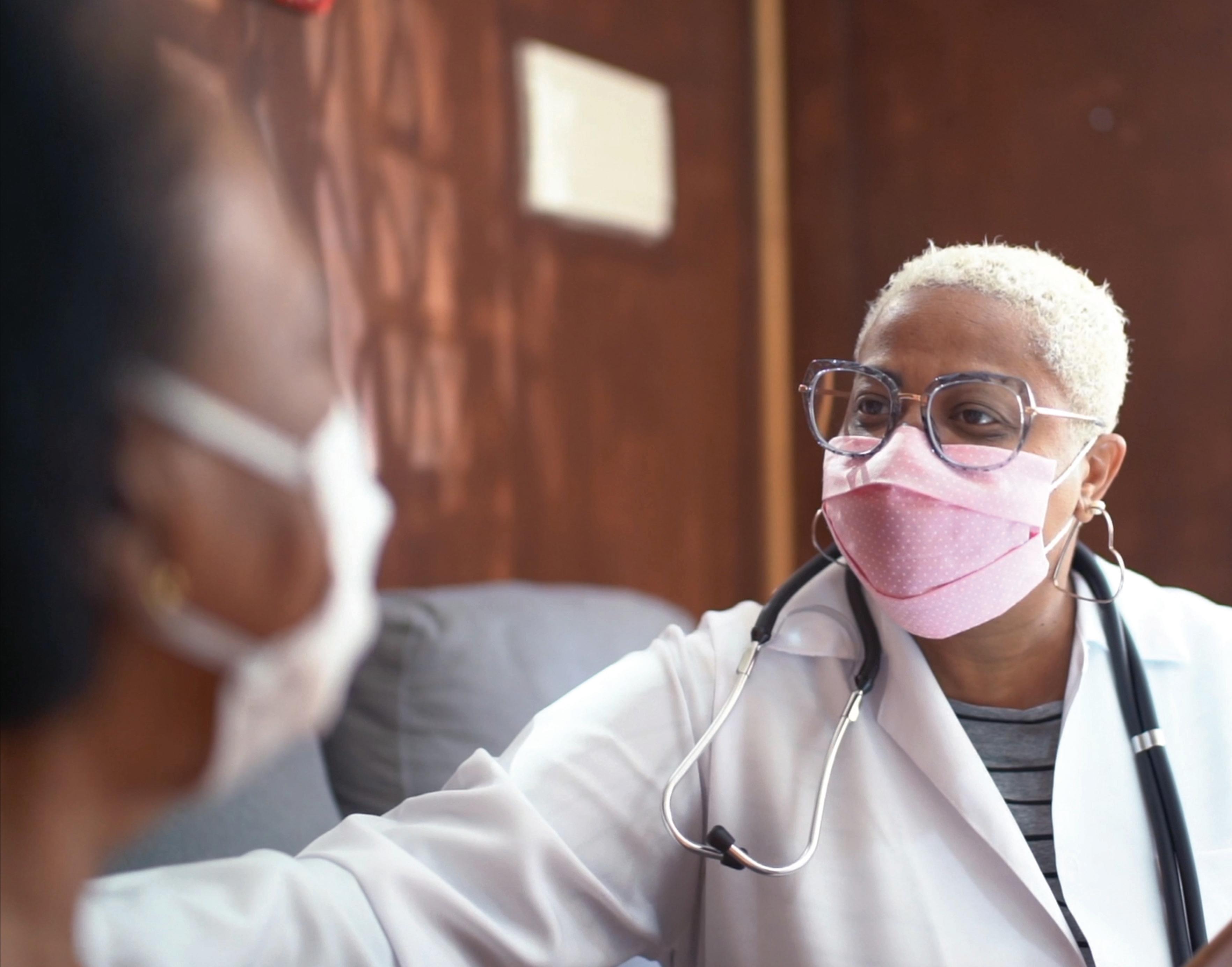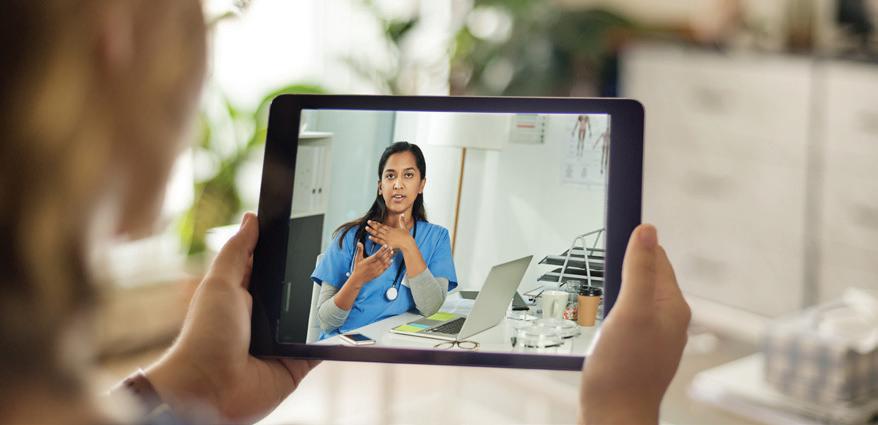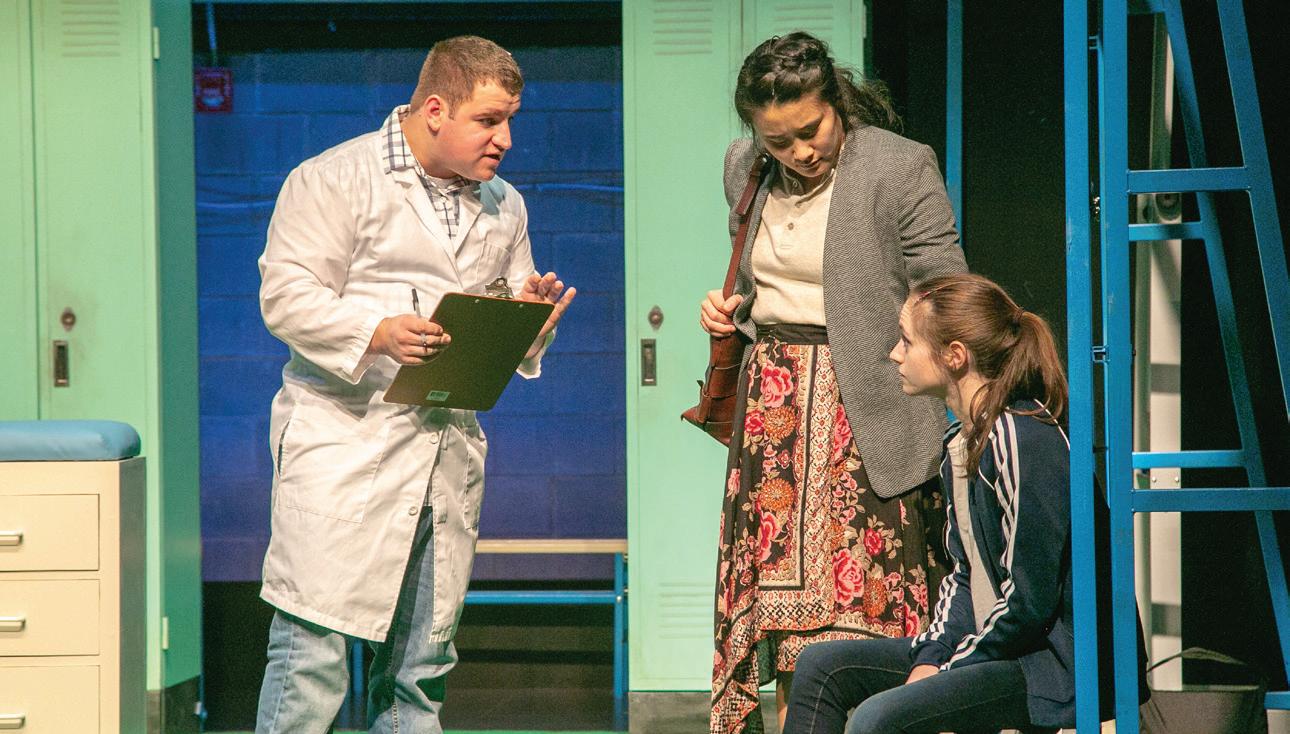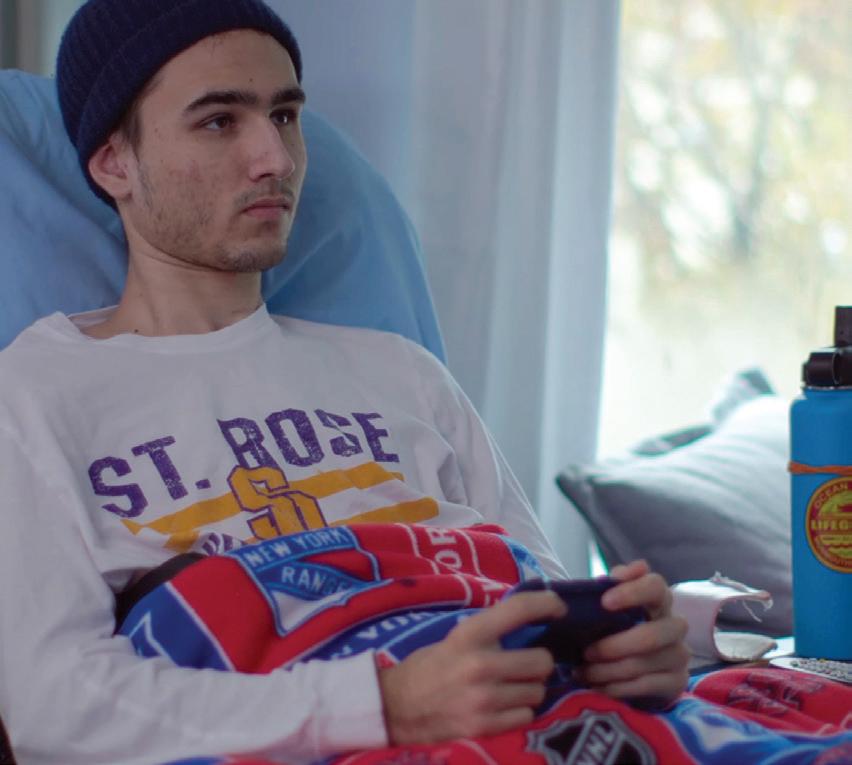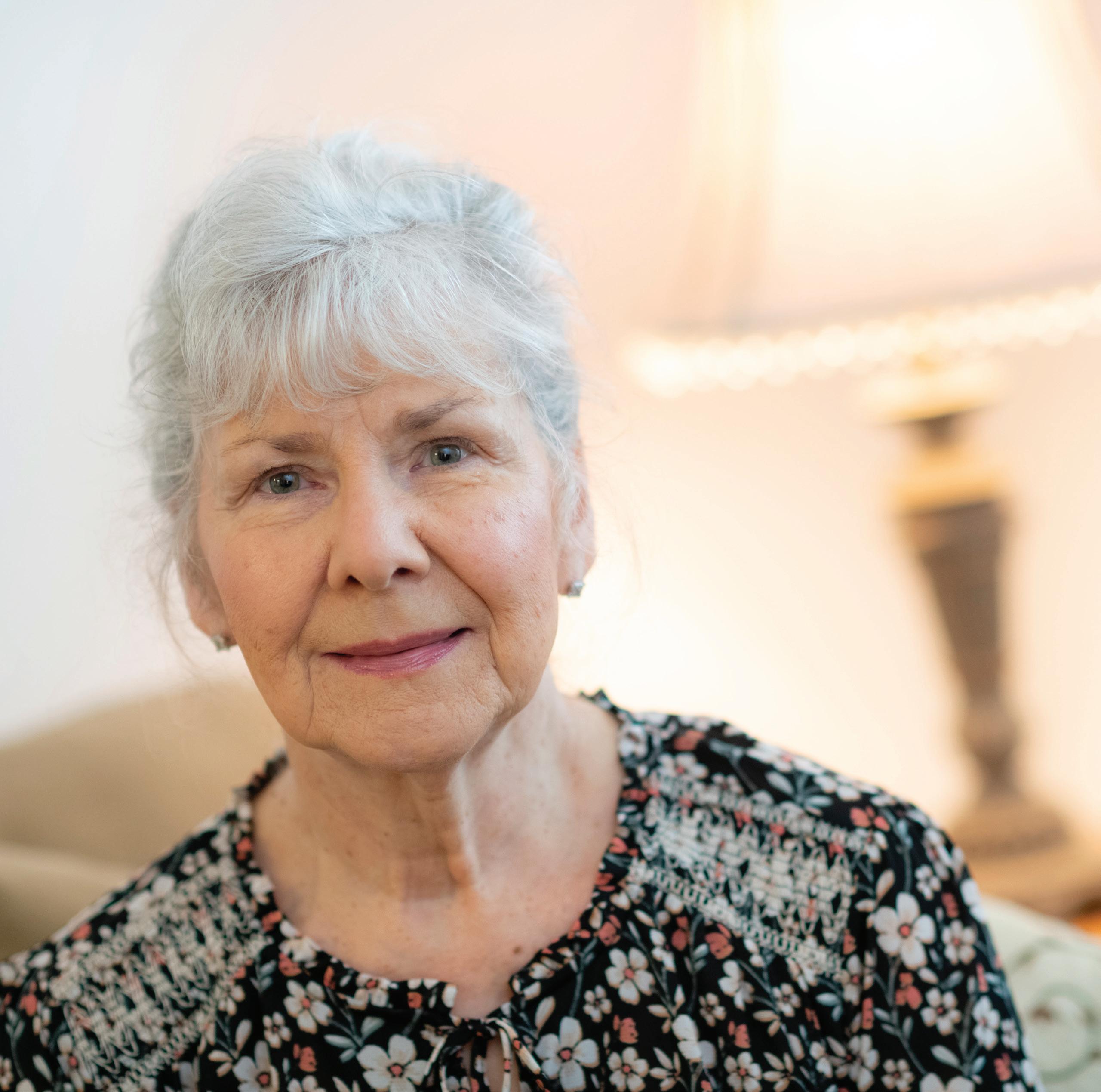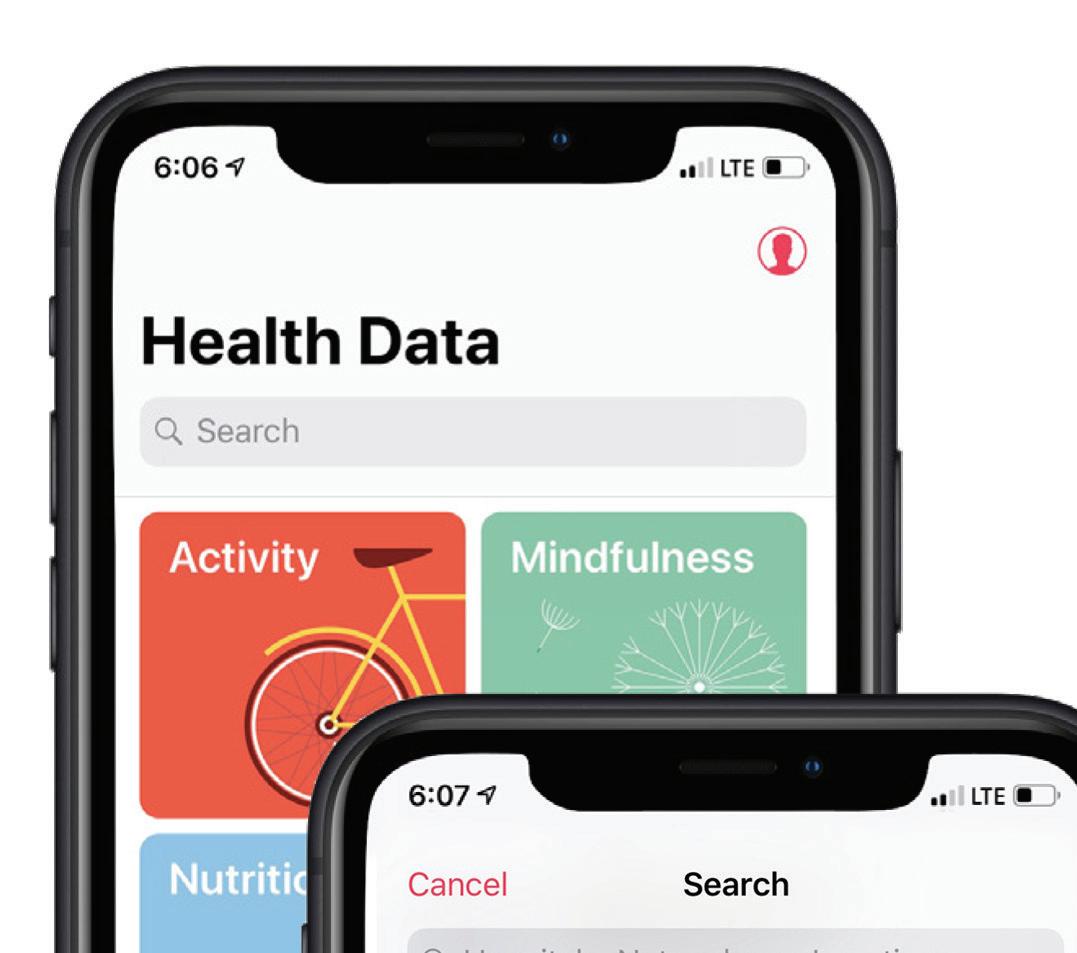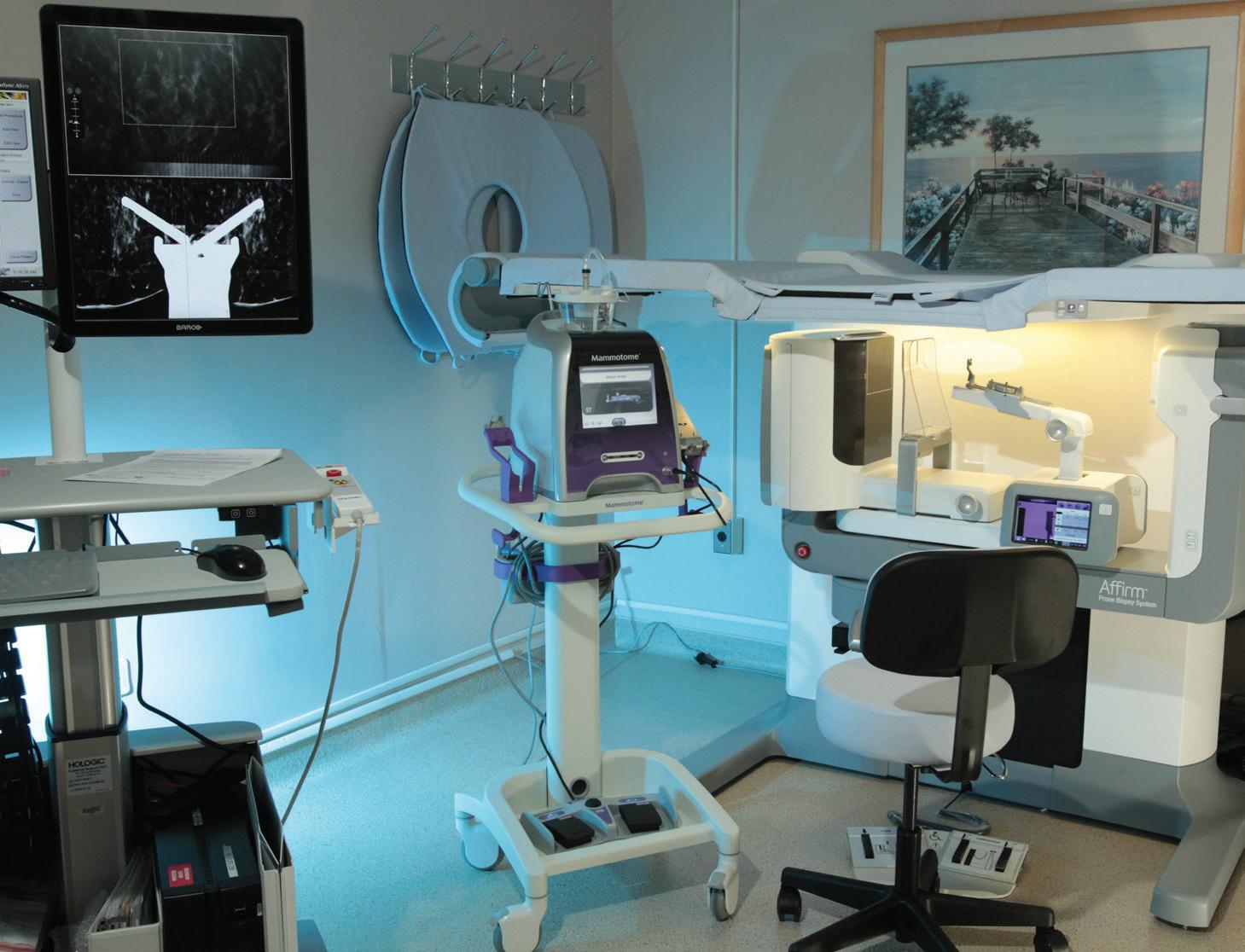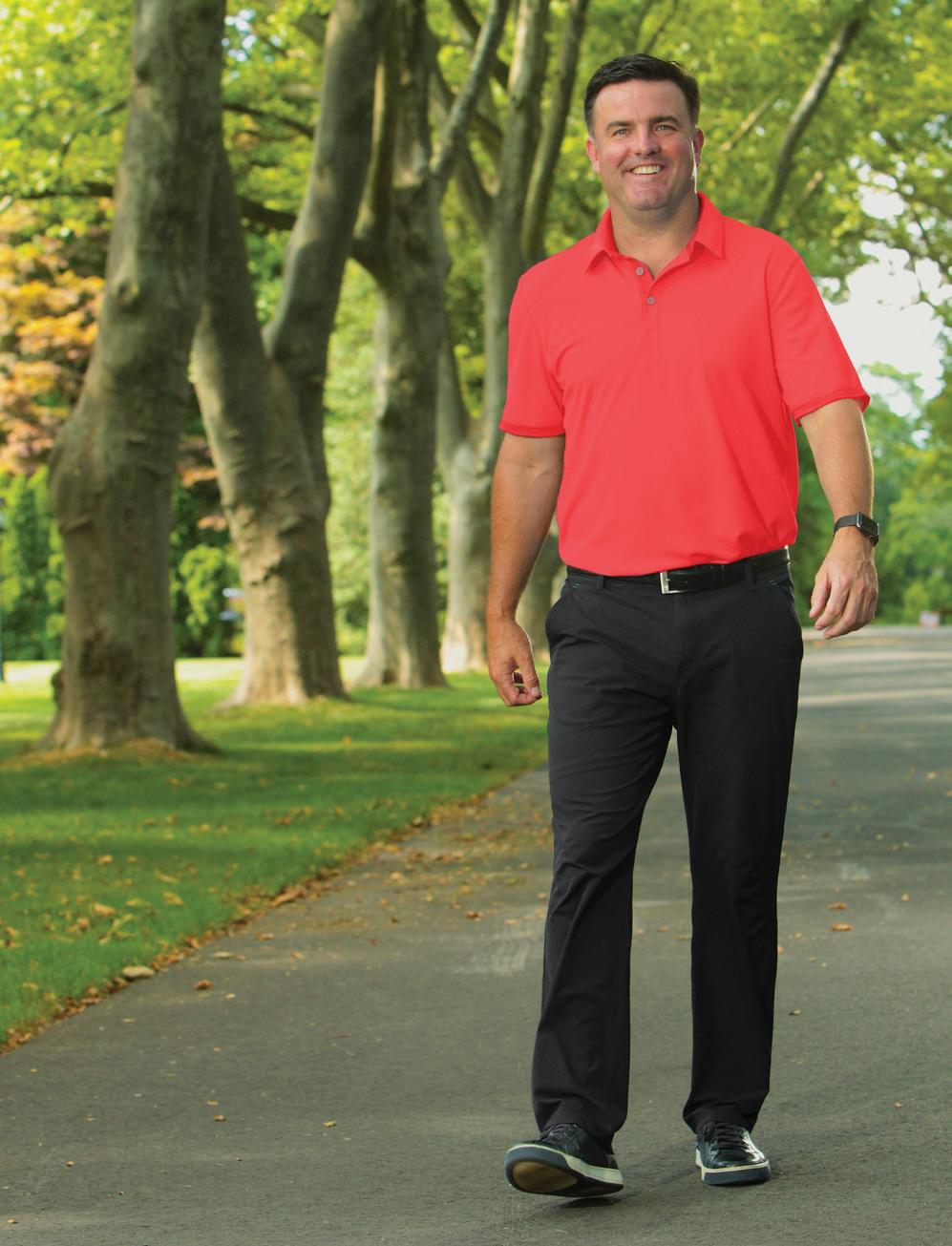
3 minute read
GOING ABOVE AND BEYOND
RWJBarnabas Health and Monmouth Medical Center Southern Campus, in partnership with Rutgers Cancer Institute of New Jersey—the state’s only NCI-Designated Comprehensive Cancer Center—provide closeto-home access to the most advanced treatment options. Call 844.CANCERNJ or visit www.rwjbh.org/beatcancer.

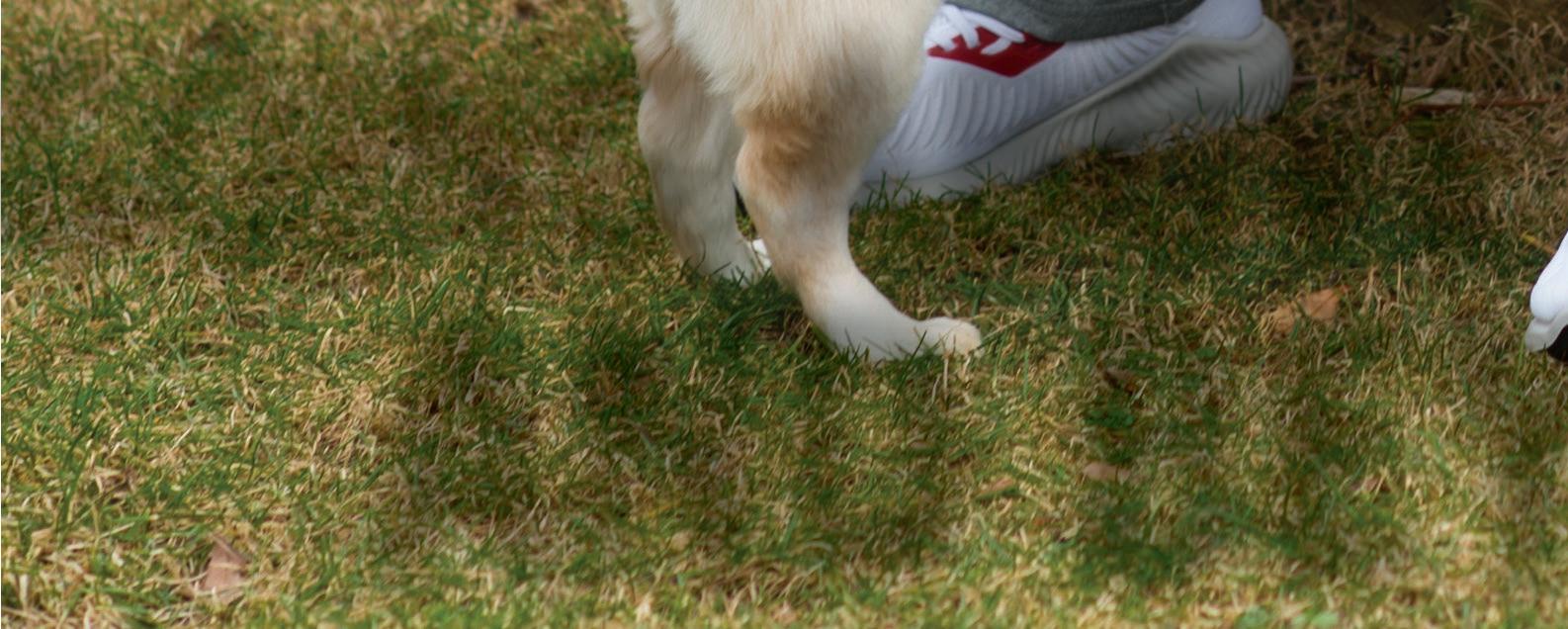
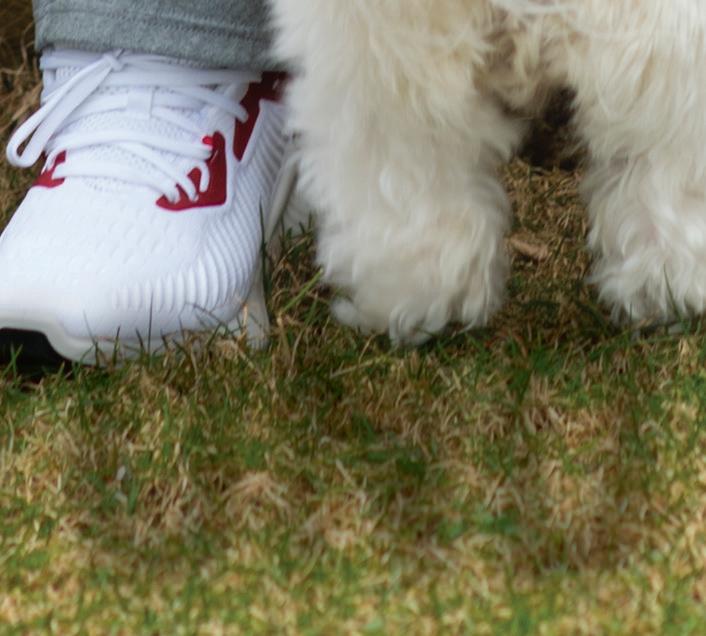
A NURSE WAS RECOGNIZED FOR HER DEDICATION TO PATIENT CARE.
In the summer of 2018, Anthony Bolognese, of Bayville, was battling an upper respiratory infection. Worried he might have pneumonia, he went to an urgent care center, where an X-ray was taken. It turned out Anthony didn’t have pneumonia, but the radiologist noted a suspicious spot on the X-ray. A CT scan was performed, and it revealed a tumor in his trachea, or airway. Seth Cohen, MD, a medical oncologist and Regional Director of Oncology Services for the RWJBarnabas Health Southern Region, biopsied the tumor, which turned out to be malignant. “When I found out I had cancer, I started crying,” recalls Anthony, who lost three siblings and his father to cancer. “I was afraid of dying.”
Anthony was prescribed chemotherapy, which he would receive once every three weeks at the Monmouth Medical Center Southern Campus (MMCSC) Outpatient Infusion Unit. His first day of treatment was extremely stressful. There was bad traffic on the way to the hospital, and the “cooling cap”—which helps prevent hair loss during chemotherapy—he’d ordered hadn’t arrived yet. “I said, ‘Something isn’t right; I don’t want to have chemotherapy,’” he recalls. “I turned around to leave, and then I met Stephanie, a nurse, who convinced me things would be okay. She said, ‘Trust me, I will be here for you. I will find you a nice room with a TV.’”
Stephanie Bisignano, RN, Anthony’s oncology nurse, recalls his apprehension. “His diagnosis was quick, and he was overwhelmed,” she says. “He didn’t have time to process the news of his diagnosis. He received his port (a small device through which chemotherapy drugs can be given) just a few days aft er he found out he had cancer. You could see the terror on his face.” What’s more,
Patient Anthony Bolognese with his wife, Renee, left, and his nurse, Stephanie Bisignano, RN, with her Daisy Award. Note: This photo was taken before mask and social distancing
recommendations were in place.
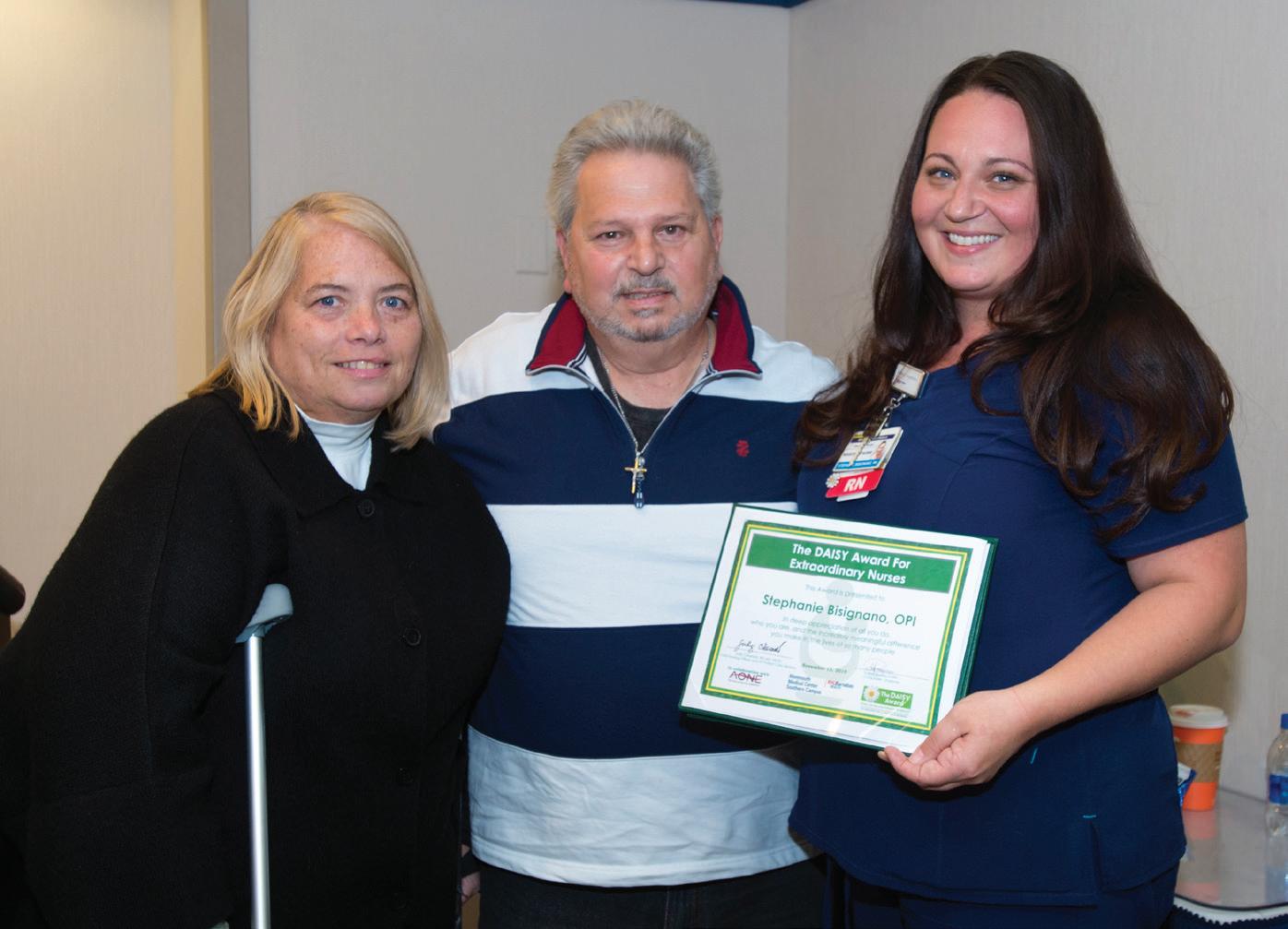
his treatment was long and arduous. “It lasted four to six hours per day,” she says. “In the beginning, I spent a lot of time explaining his treatment, medications and side eff ects. Aft er I spoke with him, he became more comfortable.”
ENCOURAGING WORDS
Anthony didn’t like to see other people having bloodwork or chemotherapy, so Stephanie found him a private room. She made trips to Dunkin’ Donuts for Anthony, and she always asked how he was feeling. “She’d say, ‘You’re getting better; you’re looking better,’” he recalls. “She cheered me up every time I came for treatment.” Stephanie also entertained Anthony with stories about her kids. “She made me laugh,” he says. “I don’t think I went one day without laughing.” For Stephanie, this is just part of her job. “As a nurse, you want to make people feel comfortable,” she says. “You can tell when a patient’s spirits are down, and you do anything you can to cheer him or her up.”
Anthony’s wife, Renee, a Nurse Practitioner at Monmouth Medical Center, was also grateful to Stephanie, who cared for Anthony at every appointment. “She always greeted us with a warm welcome,” she recalls. “She gave us her phone number, as well as questions to ask the doctors. It was a blessing to have her.”
A GRATEFUL PATIENT
Anthony was so pleased with Stephanie’s care that he decided to nominate her for a Daisy Award, which recognizes extraordinary nurses. He wrote: “Many times, I was scared, nervous and unsure… and she gave me detailed information to help me relax. She is one of the best nurses I’ve ever had.”
The ceremony was held at MMCSC in November 2019, and Anthony presented Stephanie with the award. “It was emotional when I heard him speak,” recalls Stephanie. “People think it’s terrible to work in oncology, but it’s not sad or depressing when you see a patient do well. Also, it’s heartwarming to see a patient come back to visit after treatment.” For Anthony, Stephanie was not only a warm, attentive nurse but also a lifesaver. “If it wasn’t for her, I wouldn’t be here,” he says.
To schedule an appointment with a cancer specialist, call 844.CANCERNJ.

